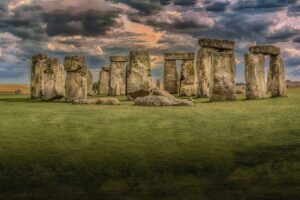In the realm of academia, the term “modern history” refers to the period from the late 15th century to the present day. It encapsulates significant global events, societal transformations, and technological advancements that have shaped the world we live in today. Modern history is characterized by the rise of nation-states, industrialization, imperialism, and the emergence of new ideologies that have had a profound impact on human civilization.
What Is Considered Modern History
 Modern history, generally referred to as the period from the late 15th century to the present day, encapsulates a significant chapter in the global narrative. Characterized by pivotal global events, societal transformations, and technological progressions, modern history delves into the intricate web of influences that have shaped the contemporary world.
Modern history, generally referred to as the period from the late 15th century to the present day, encapsulates a significant chapter in the global narrative. Characterized by pivotal global events, societal transformations, and technological progressions, modern history delves into the intricate web of influences that have shaped the contemporary world.
During this era, nation-states emerged as dominant political entities, heralding a shift from feudal societies towards centralized governance structures. The onset of industrialization revolutionized economies, paving the way for mass production and urbanization. Concurrently, the age of imperialism saw major powers expanding their territories through colonization and conquest, profoundly impacting geopolitics and cultural exchange.
Moreover, modern history witnessed the rise of new ideologies that reshaped societal norms and values, challenging traditional belief systems across the globe. By studying this period, one gains valuable insights into present-day complexities, historical conflicts, and the evolutionary trajectory of societies on a global scale.
Exploring the annals of modern history unveils the underlying forces and dynamics that have sculpted the modern world, offering a profound comprehension of the multifaceted developments that continue to resonate in contemporary society.
Characteristics of Modern History
Modern history, ranging from the late 15th century to the present day, is a pivotal era in global history. The emergence of nation-states, industrialization, imperialism, and the development of new ideologies have significantly shaped the contemporary world. Studying modern history offers insights into present-day complexities, historical conflicts, and the evolution of societies worldwide. This period is characterized by notable global events, societal changes, and technological advancements that have deeply influenced our modern society.
Technological Advances 
Technological advances in modern history have revolutionized various aspects of human life. Innovations in communication, transportation, and medicine have greatly enhanced global connectivity and quality of life. For example, the invention of the steam engine during the Industrial Revolution transformed manufacturing processes and transportation systems, leading to unprecedented economic growth. The advancements in digital technology in the 20th and 21st centuries have further accelerated globalization and information exchange, shaping the modern world as we know it.
Societal Transformations
Societal transformations during modern history have reshaped social structures, cultural norms, and political systems across the globe. The industrial revolution brought about urbanization, leading to the rise of urban centers and changes in labor practices. Moreover, movements for social justice and equality, such as the civil rights movement and women’s suffrage, have driven significant societal changes. These transformations have influenced governance, human rights, and the dynamics of interpersonal relationships, reflecting the evolving values and beliefs of contemporary societies.
Major Events in Modern History
 The section about Major Events in Modern History delves into key historical occurrences that have shaped the contemporary world. These events have been pivotal in influencing societal, political, and technological landscapes, leaving a lasting impact on global development and progress.
The section about Major Events in Modern History delves into key historical occurrences that have shaped the contemporary world. These events have been pivotal in influencing societal, political, and technological landscapes, leaving a lasting impact on global development and progress.
- Industrial Revolution
The Industrial Revolution, which began in the late 18th century, transformed manufacturing processes, leading to urbanization, increased production, and advancements in technology. Inventions like the steam engine revolutionized industries, propelling economic growth and societal changes. - World Wars
The outbreak of World War I in 1914 and World War II in 1939 resulted in significant geopolitical shifts, loss of lives on a massive scale, and technological innovations in warfare. These conflicts reshaped international relations, redrew boundaries, and laid the foundation for the modern world order. - Cold War
The ideological confrontation between the United States and the Soviet Union post-World War II defined the Cold War era. The competition for global influence, nuclear arms race, and proxy wars between the two superpowers influenced politics, diplomacy, and military strategies worldwide. - Decolonization
The mid-20th century witnessed decolonization movements across Asia, Africa, and the Middle East, as former colonies sought independence from colonial powers. These struggles for self-determination reshaped geopolitical dynamics, fostering the emergence of new nation-states and influencing international politics. - Civil Rights Movement
The Civil Rights Movement in the United States during the 1950s and 1960s sought to end racial segregation and discrimination against African Americans. Led by figures like Martin Luther King Jr., the movement advocated for equality, justice, and social reforms, sparking conversations about human rights and diversity globally. - Technological Revolution
The late 20th and early 21st centuries witnessed a rapid technological revolution with the rise of digitalization, internet connectivity, and advancements in AI and biotechnology. These innovations have transformed communication, healthcare, and business models, shaping the way individuals interact and societies function in the modern era.
Modern history, from the late 15th century onwards, has significantly influenced our current world. The evolution of nation-states, industrialization, imperialism, and ideologies has left a lasting impact on global societies.



